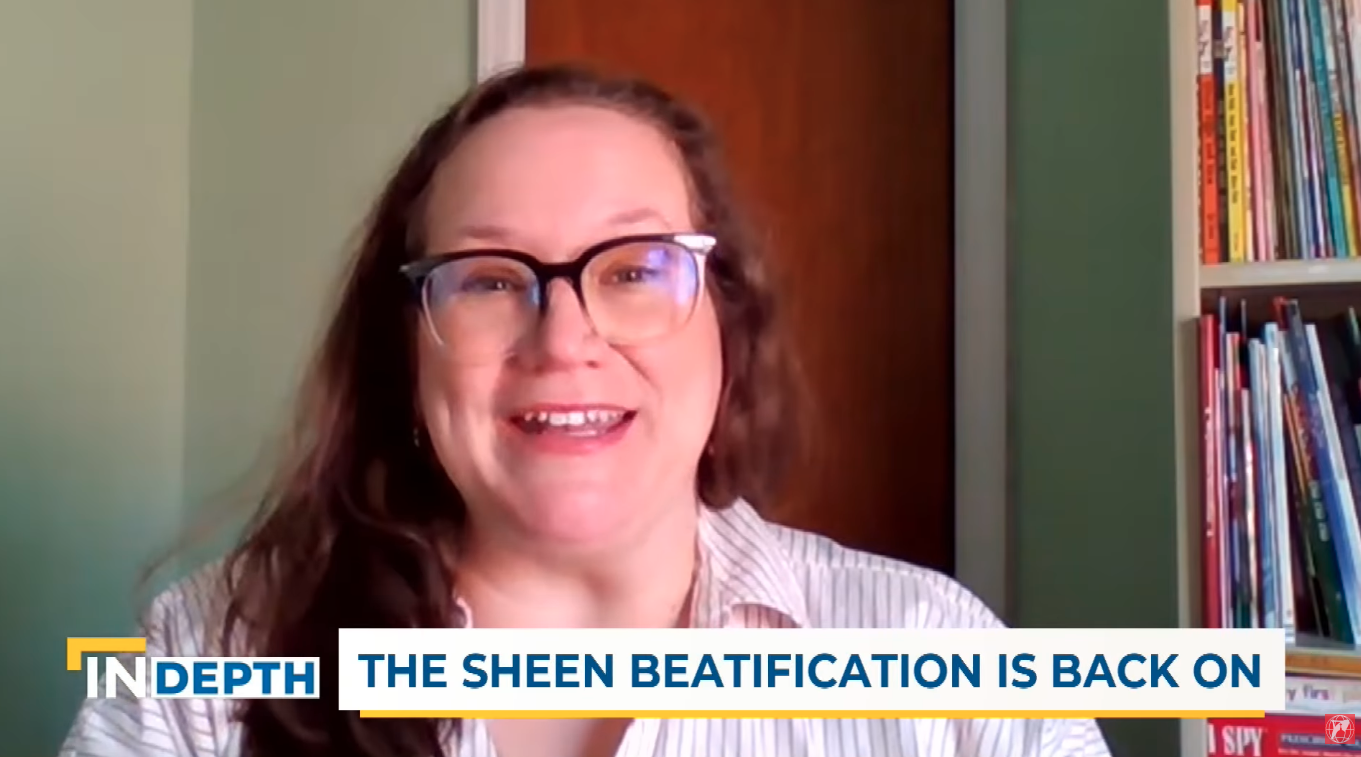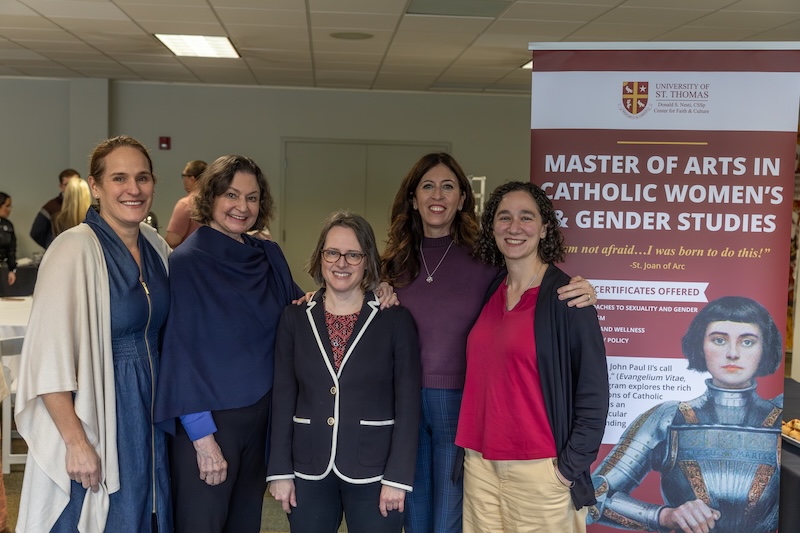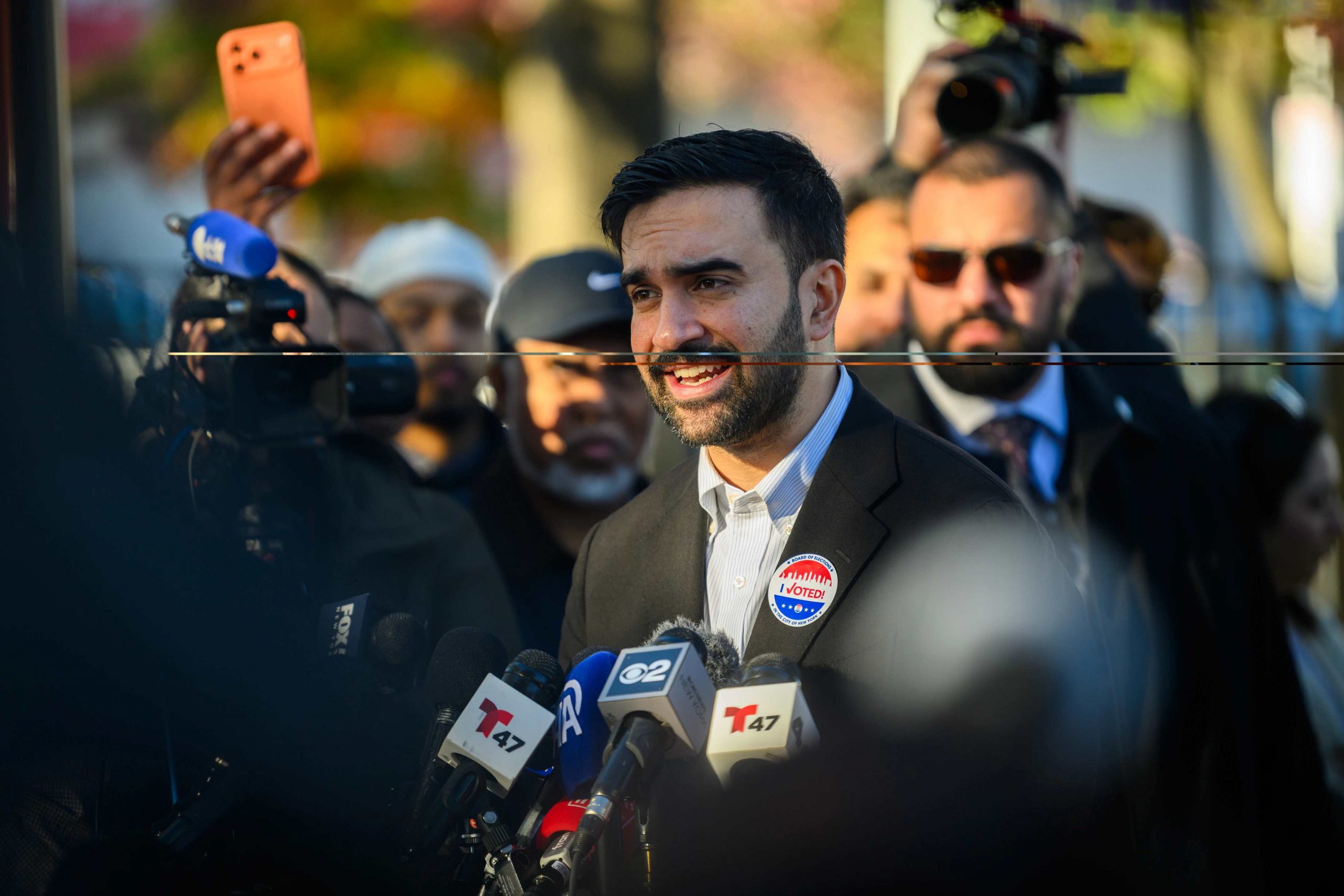 Credit: CDC/Debora Cartagena
Credit: CDC/Debora Cartagena
Jan 12, 2026 / 06:00 am (CNA).
Catholic medical professionals and ethicists had mixed reactions to the Centers for Disease Control and Prevention’s (CDC) announcement last week that it has revised the recommended childhood and adolescent vaccine schedule.
In a press release on Jan. 5, the CDC announced a revised recommended childhood immunization schedule, which reduces the number of universally recommended vaccines from 18 to 11. It retains routine recommendations for all children against measles, mumps, rubella, polio, pertussis, tetanus, diphtheria, Haemophilus influenzae type b, pneumococcal disease, human papillomavirus (HPV), and varicella (chickenpox).
Vaccines for rotavirus, influenza, COVID-19, hepatitis A, hepatitis B, meningococcal disease, and RSV now shift to recommendations for high-risk groups or after “shared clinical decision-making” between providers and families.
According to a Department of Health and Human Services (HHS) memo, the CDC “applies shared clinical decision-making recommendations when evidence indicates that individuals may benefit from vaccination based on an analysis of the individual’s characteristics, values, and preferences, the provider’s medical judgment, and the characteristics of the vaccine being considered.”
Insurance companies must continue to cover all vaccines.
The changes come after President Donald Trump directed the heads of the CDC and HHS in December 2025 to “review best practices from peer, developed nations regarding childhood vaccination recommendations and the scientific evidence underlying those practices” and to make changes accordingly.
After reviewing the vaccination practices of 20 peer nations, a scientific assessment found that “the U.S. is a global outlier among developed nations in both the number of diseases addressed in its routine childhood vaccination schedule and the total number of recommended doses but does not have higher vaccination rates than such countries.”
“Science demands continuous evaluation,” Dr. Jay Bhattacharya, director of the National Institutes of Health (NIH), said in the CDC press release. “This decision commits NIH, CDC, and the Food and Drug Administration (FDA) to gold standard science, greater transparency, and ongoing reassessment as new data emerge.”
Dr. Tim Millea, chair of the health care policy committee at the Catholic Medical Association (CMA), welcomed the changes, telling CNA that he thought the CDC approached the revisions “in a very logical way.”
“There has been a huge drop in trust surrounding vaccines since the COVID-19 pandemic,” Millea said. “The suggestions during COVID that the science was ‘settled’ rubbed a lot of us the wrong way.”
“The loudest critics of these new recommendations say this is ideology over science,” he said. “Science is a process, not an end. If we need more evidence, let’s get it,” he said, pointing out Bhattacharya’s call for “gold standard” science and “ongoing reassessment.”
Millea, a retired orthopedic surgeon, said he has confidence that Bhattacharya and Dr. Marty Makary, head of the FDA, are “not going to let ideology get ahead of science.”
The president of the National Catholic Bioethics Center (NCBC), John Di Camillo, told CNA in a statement regarding the updated immunization recommendations: “The people look to public health authorities precisely for this kind of guidance, which is responsive to continually evolving research, ongoing discussions among professionals in the medical field, and ethical principles that promote the common good, respect the dignity of the human person, and limit the interference of financial and ideological conflicts.”
‘Let those closest to the children make the decisions’
Millea acknowledged that critics of the CDC’s revised recommendations say comparing the U.S. vaccine schedule to that of much smaller, more homogeneous nations such as Denmark is like “comparing apples to oranges.”
However, he pointed out that the CDC’s revised schedule is simply a recommendation, and each of the 50 U.S. states is free to do what it deems best. “It’s like 50 laboratories. Let’s see what works the best.”
Invoking the Catholic principle of subsidiarity, Millea said “let those closest to the children who are getting the vaccinations make the decisions.”
“One of the positive aspects of the pandemic is that now we can take a step back and we’re questioning, not because something may be wrong, but maybe because it could be improved upon,” Millea said.
John F. Brehany, executive vice president and director of Institutional Relations at the NCBC, told CNA that “the new schedule appears to have been designed with good intent; that is, … to have gained public trust in the absence of mandates and to have contributed to population health outcomes that meet or exceed those of the U.S.”
“The new schedule does not take a ‘one size fits all’ approach but rather structures recommendations based on the nature of the diseases, vaccines in question, and characteristics of the children or patients who may receive them,” he continued. “This approach appears to be well-founded and to provide a sound foundation for respecting the dignity and rights of every unique human person.”
This will ‘sow more confusion’
Dr. Gwyneth Spaeder, a Catholic pediatrician in North Carolina, did not welcome the changes to the immunization schedule.
While she acknowledged that the damage to trust in institutions was substantial after the COVID-19 pandemic, she thinks the issues surrounding the COVID-19 vaccine’s safety and efficacy “cannot be compared” with the decades of studies demonstrating the safety of common children’s immunizations.
“It is not the same moral calculus,” she said.
She does not believe revising the immunization schedule this way will restore trust in institutions, which she said might take “years or even generations” to rebuild.
This method will “sow more confusion,” Spaeder said. “Instead of trying to rebuild trust in transparent, evidence-based practices, we have created a situation where everyone is told different things … For this child, we think this schedule is the best, for that child, there’s a different one. That’s not how public health works.”
She also said that comparing the homogeneous, relatively tiny population of 6 million in Denmark to that of the diverse population of 340 million in the U.S. is “a false comparison.”
“Their children are at less risk from falling through the cracks and contracting these diseases we try to vaccinate against,” she said, noting the protective public health effects of Denmark’s universal health care and generous parental leave policies.
“The children who will be most harmed in the U.S. are the underserved,” Spaeder said. “That’s being lost in this conversation. We can have a lot of high-level political arguments, but I am most concerned about my patients from single-parent homes who attend day care from young ages, or who are born to mothers who don’t have adequate prenatal care.”
“They will lose out the most from not being protected from these diseases.”
Read More
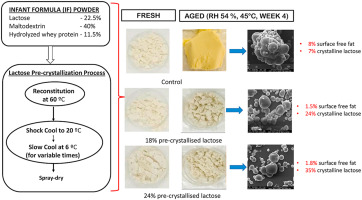

![Catholic thinkers, tech experts reflect on promise and perils of AI at New York Encounter #Catholic NEW YORK — How can Catholic social teaching guide us in weighing the benefits of artificial intelligence against the dangers it poses to human dignity? That question animated a wide-ranging discussion among Catholic thinkers and technology experts at the New York Encounter on Saturday.Citing Pope Leo XIV’s call to use AI responsibly as well as the Church’s historic defense of human dignity in the face of modern technology, Davide Bolchini, moderator and dean of the Luddy School of Informatics at Indiana University, opened the discussion before an audience of several hundred people gathered for the three-day cultural conference in New York City.“The pope encouraged us to use AI responsibly, to use it in a way that helps us grow, not to let it work against us, but to let it work with us, not to substitute human intelligence, not to replace our judgment of what’s right … our ability of authentic wonder,” Bolchini said.With technology rapidly advancing, Bolchini asked, how can the Church stay ahead of these challenges?Chuck Rossi, an engineer at Meta who is developing AI-driven content moderation technology at the technology conglomerate, which includes Facebook and Instagram, argued that in his work, developments in AI have been instrumental in safeguarding human beings from harm. AI systems, he said, can examine 2.5 billion pieces of of shared online content per hour, filtering harmful material including nudity and sexual activity, bullying and harassment, child endanger, dangerous organizations, fake accounts, hateful conduct, restricted goods and services, spam, suicide and self-injury, violence and incitement, and violent and graphic content.“That’s my world,” he said. “It’s a very, very hard problem. If we miss 0.1% of 2. 5 billion, that’s millions of things that we didn’t want to be seeing. But we do an excellent job, and we have for years — we’re one of the best at it,” Rossi said.Using AI also protects human content moderators from being exposed to disturbing material, as they were in the past.“The good thing that we are giving back to humans is you never have to do this horrible work,” he said.Paul Scherz, professor of theology at the University of Notre Dame, acknowledged the benefits of AI, which he said included advances in medicine and efficiency for tasks like billing (“Nobody wants to do billing,” he said).But Scherz warned of the dangers of relying on technology to do what is intrinsically human.“We are really starting to turn to AI as people more broadly for these relational aspects, which would be tragic because there is something in that human-to-human connection, the ‘I/thou connection,’ as Martin Buber called it, that is irreplaceable by a machine,” Scherz said. He noted that AI has even moved into ministry, with the rise of Catholic apps relying on bots to offer catechesis.Scherz also cautioned that substituting AI for human interaction and intelligence risks eroding our skills, whether in relationships or in professional life.“My fear is as we use these chatbots more and more we will lose those person-to-person skills. We’ll no longer be able to engage one another as well, or have the patience and virtue to deeply love and encounter one another,” Scherz said.In addition, relying on AI in our work, for example, when a doctor consults AI to make a diagnosis, will result in our “de-skilling,” he said. “We know that people, when they’re using automated systems, they tend to just become biased and complacent and just approve the automated system. They lose their skills,” he said, adding that airline pilots who rely too much on autopilot are more prone to making errors.Louis Kim, former vice president of personal systems and AI at Hewlett-Packard who is currently pursuing graduate studies in theology and health care, pointed out that it’s not possible to know today what skills will be required in the future.“My personal view is I often find that predictions of impacted technology are largely unconsciously based on what we know of the current paradigm and structure and technologies,” Kim said.“There are going to be skills needed to control AI that are going to be different,” he said.Kim also called for “humility” in discussions about AI’s potential to affect human relationships.“Let’s ask ourselves about the quality of our current human relationships, whether it’s in the workplace, in toxic cultures, sometimes at home — even at conferences, at your next break, as you go around talking to this person [or] that person, how many times that person is looking over your shoulder for the more important person to talk to?” he said.Our moral formation, he said, will continue to shape the quality of our encounters with others. Catholic thinkers, tech experts reflect on promise and perils of AI at New York Encounter #Catholic NEW YORK — How can Catholic social teaching guide us in weighing the benefits of artificial intelligence against the dangers it poses to human dignity? That question animated a wide-ranging discussion among Catholic thinkers and technology experts at the New York Encounter on Saturday.Citing Pope Leo XIV’s call to use AI responsibly as well as the Church’s historic defense of human dignity in the face of modern technology, Davide Bolchini, moderator and dean of the Luddy School of Informatics at Indiana University, opened the discussion before an audience of several hundred people gathered for the three-day cultural conference in New York City.“The pope encouraged us to use AI responsibly, to use it in a way that helps us grow, not to let it work against us, but to let it work with us, not to substitute human intelligence, not to replace our judgment of what’s right … our ability of authentic wonder,” Bolchini said.With technology rapidly advancing, Bolchini asked, how can the Church stay ahead of these challenges?Chuck Rossi, an engineer at Meta who is developing AI-driven content moderation technology at the technology conglomerate, which includes Facebook and Instagram, argued that in his work, developments in AI have been instrumental in safeguarding human beings from harm. AI systems, he said, can examine 2.5 billion pieces of of shared online content per hour, filtering harmful material including nudity and sexual activity, bullying and harassment, child endanger, dangerous organizations, fake accounts, hateful conduct, restricted goods and services, spam, suicide and self-injury, violence and incitement, and violent and graphic content.“That’s my world,” he said. “It’s a very, very hard problem. If we miss 0.1% of 2. 5 billion, that’s millions of things that we didn’t want to be seeing. But we do an excellent job, and we have for years — we’re one of the best at it,” Rossi said.Using AI also protects human content moderators from being exposed to disturbing material, as they were in the past.“The good thing that we are giving back to humans is you never have to do this horrible work,” he said.Paul Scherz, professor of theology at the University of Notre Dame, acknowledged the benefits of AI, which he said included advances in medicine and efficiency for tasks like billing (“Nobody wants to do billing,” he said).But Scherz warned of the dangers of relying on technology to do what is intrinsically human.“We are really starting to turn to AI as people more broadly for these relational aspects, which would be tragic because there is something in that human-to-human connection, the ‘I/thou connection,’ as Martin Buber called it, that is irreplaceable by a machine,” Scherz said. He noted that AI has even moved into ministry, with the rise of Catholic apps relying on bots to offer catechesis.Scherz also cautioned that substituting AI for human interaction and intelligence risks eroding our skills, whether in relationships or in professional life.“My fear is as we use these chatbots more and more we will lose those person-to-person skills. We’ll no longer be able to engage one another as well, or have the patience and virtue to deeply love and encounter one another,” Scherz said.In addition, relying on AI in our work, for example, when a doctor consults AI to make a diagnosis, will result in our “de-skilling,” he said. “We know that people, when they’re using automated systems, they tend to just become biased and complacent and just approve the automated system. They lose their skills,” he said, adding that airline pilots who rely too much on autopilot are more prone to making errors.Louis Kim, former vice president of personal systems and AI at Hewlett-Packard who is currently pursuing graduate studies in theology and health care, pointed out that it’s not possible to know today what skills will be required in the future.“My personal view is I often find that predictions of impacted technology are largely unconsciously based on what we know of the current paradigm and structure and technologies,” Kim said.“There are going to be skills needed to control AI that are going to be different,” he said.Kim also called for “humility” in discussions about AI’s potential to affect human relationships.“Let’s ask ourselves about the quality of our current human relationships, whether it’s in the workplace, in toxic cultures, sometimes at home — even at conferences, at your next break, as you go around talking to this person [or] that person, how many times that person is looking over your shoulder for the more important person to talk to?” he said.Our moral formation, he said, will continue to shape the quality of our encounters with others.](https://unitedyam.com/wp-content/uploads/2026/02/catholic-thinkers-tech-experts-reflect-on-promise-and-perils-of-ai-at-new-york-encounter-catholic-new-york-how-can-catholic-social-teaching-guide-us-in-weighing-the-benefits-of-artificial-scaled.jpg)
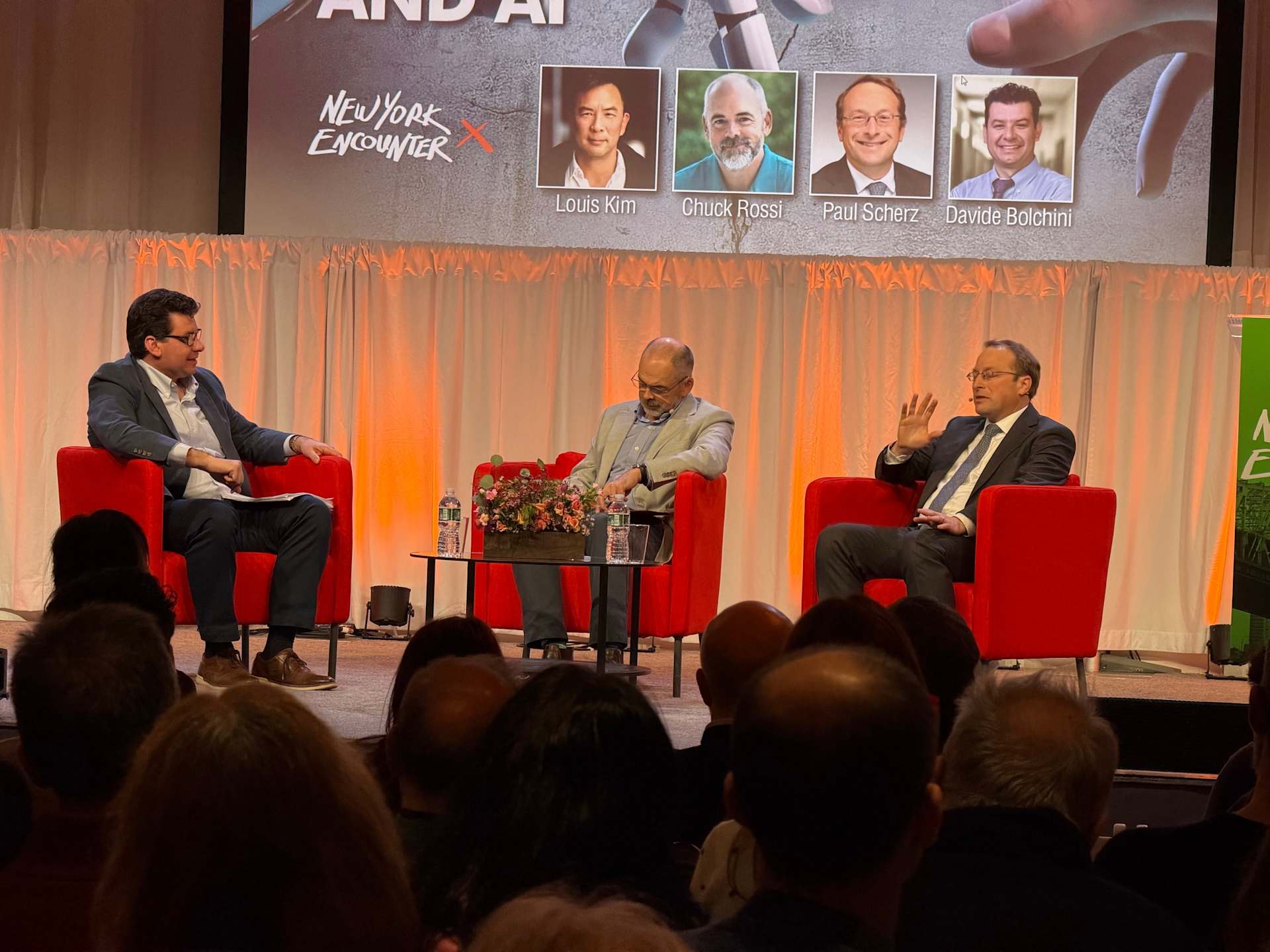
![Mother of boy healed through intercession of Fulton Sheen celebrates his upcoming beatification #Catholic Bonnie Engstrom, the mother of the child who was healed through Archbishop J. Fulton Sheen’s intercession, said she “laughed out loud with joy” when she heard his beatification was going to move forward.On Feb. 9, the Holy See officially informed Bishop Louis Tylka of the Diocese of Peoria, Illinois, that the cause for the Venerable Servant of God Archbishop Fulton J. Sheen can proceed to beatification. He is credited for the miracle that saved the life of Engstrom’s son James Fulton Engstrom, who was named after Sheen.“We had started getting to know Fulton Sheen and growing in our devotion to him while I was pregnant with James,” Engstrom said in a Feb. 13 interview with “EWTN News In Depth.” “During that pregnancy we had decided to name our son after him … to really put him under his patronage.”On Sept. 16, 2010, James was born at home. It had been a healthy pregnancy, and it was a healthy labor, but there was a knot in James’ umbilical cord that tightened during birth. “He was a stillborn, there was absolutely no sign of life,” Engstrom said.In the “time of crisis, I was in a state of shock,” she said. “I didn’t really know what to do, but I remember calling on Fulton Sheen, just saying his name, ‘Fulton Sheen, Fulton Sheen, Fulton Sheen.’”“While [James] was at home, while he was in the ambulance, and while he was at the hospital in the emergency room, he did not have a pulse for that entire time,” she said. “Right as the medical team was ready to call time of death, all hands were off. And at that moment, his heart started to beat again, and it never stopped after that.”James is a freshman in high school and doing “great,” Engstrom said. “He is doing really well. He loves music. He’s in an art class that he’s really enjoying … he’s a great kid. Hardworking, funny.”While James “has had some medical issues along the way,” there is nothing the family can attribute to his health issues at birth.Engstrom said that her son’s “initial MRI, the first 24 hours of his life, showed extensive brain damage, and the follow-up one was perfectly clear.”Sheen’s beatificationSheen’s cause for canonization was first opened in 2002 under the leadership of the Diocese of Peoria, Sheen’s birthplace, and from then on he was referred to as a servant of God. Pope Benedict XVI declared him venerable in June 2012.On March 6, 2014, the board of medical experts who advise the then-Congregation for the Causes of Saints unanimously approved the reported miracle of James. Pope Francis approved of the miracle of Sheen’s on July 5, 2019, and the beatification experienced numerous delays due to an ownership dispute of his remains and an investigation into clergy sex abuse in New York.While obstacles were eventually cleared, Engstrom said initially her family was “frustrated” and “disappointed” with the delays. “I think as things in the Church just continue to progress and time went by, we realized, we trust in Jesus and he’s got it in control. And so we were able to really lean into that and move past the initial disappointment,” she said.The family is “so excited,” Engstrom said. "We’re so happy about it.” “We really appreciate that in all of Church history, our family has a little footnote in it in a very special way, and it’s remarkable. It is such an honor, and it’s such a joyful thing,” she said. Mother of boy healed through intercession of Fulton Sheen celebrates his upcoming beatification #Catholic Bonnie Engstrom, the mother of the child who was healed through Archbishop J. Fulton Sheen’s intercession, said she “laughed out loud with joy” when she heard his beatification was going to move forward.On Feb. 9, the Holy See officially informed Bishop Louis Tylka of the Diocese of Peoria, Illinois, that the cause for the Venerable Servant of God Archbishop Fulton J. Sheen can proceed to beatification. He is credited for the miracle that saved the life of Engstrom’s son James Fulton Engstrom, who was named after Sheen.“We had started getting to know Fulton Sheen and growing in our devotion to him while I was pregnant with James,” Engstrom said in a Feb. 13 interview with “EWTN News In Depth.” “During that pregnancy we had decided to name our son after him … to really put him under his patronage.”On Sept. 16, 2010, James was born at home. It had been a healthy pregnancy, and it was a healthy labor, but there was a knot in James’ umbilical cord that tightened during birth. “He was a stillborn, there was absolutely no sign of life,” Engstrom said.In the “time of crisis, I was in a state of shock,” she said. “I didn’t really know what to do, but I remember calling on Fulton Sheen, just saying his name, ‘Fulton Sheen, Fulton Sheen, Fulton Sheen.’”“While [James] was at home, while he was in the ambulance, and while he was at the hospital in the emergency room, he did not have a pulse for that entire time,” she said. “Right as the medical team was ready to call time of death, all hands were off. And at that moment, his heart started to beat again, and it never stopped after that.”James is a freshman in high school and doing “great,” Engstrom said. “He is doing really well. He loves music. He’s in an art class that he’s really enjoying … he’s a great kid. Hardworking, funny.”While James “has had some medical issues along the way,” there is nothing the family can attribute to his health issues at birth.Engstrom said that her son’s “initial MRI, the first 24 hours of his life, showed extensive brain damage, and the follow-up one was perfectly clear.”Sheen’s beatificationSheen’s cause for canonization was first opened in 2002 under the leadership of the Diocese of Peoria, Sheen’s birthplace, and from then on he was referred to as a servant of God. Pope Benedict XVI declared him venerable in June 2012.On March 6, 2014, the board of medical experts who advise the then-Congregation for the Causes of Saints unanimously approved the reported miracle of James. Pope Francis approved of the miracle of Sheen’s on July 5, 2019, and the beatification experienced numerous delays due to an ownership dispute of his remains and an investigation into clergy sex abuse in New York.While obstacles were eventually cleared, Engstrom said initially her family was “frustrated” and “disappointed” with the delays. “I think as things in the Church just continue to progress and time went by, we realized, we trust in Jesus and he’s got it in control. And so we were able to really lean into that and move past the initial disappointment,” she said.The family is “so excited,” Engstrom said. "We’re so happy about it.” “We really appreciate that in all of Church history, our family has a little footnote in it in a very special way, and it’s remarkable. It is such an honor, and it’s such a joyful thing,” she said.](https://unitedyam.com/wp-content/uploads/2026/02/mother-of-boy-healed-through-intercession-of-fulton-sheen-celebrates-his-upcoming-beatification-catholic-bonnie-engstrom-the-mother-of-the-child-who-was-healed-through-archbishop-j-fulton-sheen.png)
